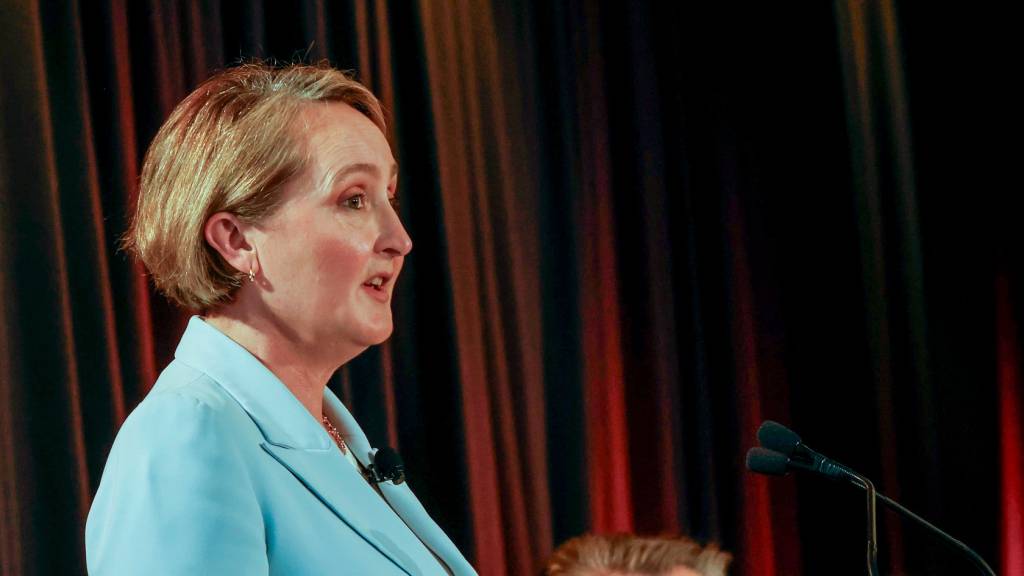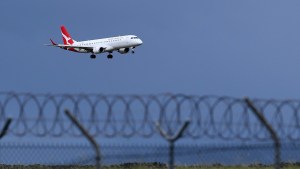The question of whether Qantas has actually changed, almost two years after the sudden departure of divisive former boss Alan Joyce, hung heavy over the judgment that saw the airline fined $90 million in penalties yesterday for illegally outsourcing 1,820 staff under the cover of the COVID-19 pandemic.
The figure took the total redress for the life-shattering cuts to $210 million. Compensation of $120 million was ordered by Federal Court Justice Michael Lee last year. That’s on top of the $100 million that Qantas was fined after being caught by the competition regulator for the selling of so-called ghost flights: available to book online but already cancelled by the airline.
As he pondered the airline’s behaviour and whether there was any true “contrition” in its growing number of apologies for its behaviour, Lee was scathing, dismissing Qantas’s pangs of conscience as “the wrong kind of sorry.” He criticised the airline for offering belated — at times insincere — contrition that seemed motivated more by reputational damage than genuine regret.
Related Article Block Placeholder
Article ID: 1217354
It’s worth remembering that the ground staff illegally outsourced by Qantas experienced profound personal and familial hardship. Court and union submissions revealed widespread issues: from joblessness and reliance on precarious work to superannuation depletion; from mental health crises, to loss of homes, dislocation, and breakdowns of marriages and relationships. One worker poignantly described being “dragged to hell and back,” with others prescribed Valium to cope with the stress.
Lee’s remarks highlighted scepticism over the timing and substance of Qantas’s public expressions of contrition, describing them as “performative remorse” rather than authentic accountability. The judge’s view called into question whether Qantas truly understood or accepted responsibility for the hardship it caused its employees as he noted that, throughout the litigation, Qantas pursued a vigorous defence, alongside an aggressive public relations strategy that saw the company continually deny any wrongdoing.
Independent. Irreverent. In your inbox
Get the headlines they don’t want you to read. Sign up to Crikey’s free newsletters for fearless reporting, sharp analysis, and a touch of chaos
By continuing, you agree to our Terms & Conditions and Privacy Policy.
“We are still looking through a glass darkly,” the judge noted, saying it left him “with a sense of disquiet and uncertainty as to precisely what went on within the upper echelons of Qantas leading up to the outsourcing decision”.
Sorry, not sorry?
Lee singled out Qantas chief and former chief financial officer Vanessa Hudson when slamming the company for offering no senior leaders who’d been involved in the decision to take the stand to explain what Qantas had learnt and why it would not happen again.
Lee said Hudson’s evidence would have helped him assess whether the airline’s “expressions of contrition” and its promises of cultural change were genuine.
The Transport Workers’ Union said that the workers “had done nothing wrong and had loyally served this company, in many cases for decades.” The union continued:
They weren’t just sacked, they were told by Qantas that they were delusional for questioning it. This ruthless, self-interested and illegal calculation to kick them to the curb has rightfully merited the largest ever penalty of its kind … Qantas was not sorry to workers when it illegally outsourced these workers, many finding out they’d lost their jobs over a loudspeaker in the lunch room. It was not sorry when it dragged them all the way to the High Court, or when it argued it should have to pay them no compensation at all. Qantas is only sorry now that it has to pay the largest penalty fine of any employer in Australian corporate history.
Last year, Qantas slashed almost $9.3 million from former chief executive Alan Joyce’s final payout, stripping him of $8.36 million in long-term incentive shares and cutting a third of his short-term bonus, after an independent review found the airline’s reputation had been “considerably harmed” under his leadership. The board also docked 33% of short-term incentives for other senior executives — including Hudson — and one-third of directors’ fees.
Related Article Block Placeholder
Article ID: 1216340
“These remuneration consequences reflect our determination to hold both management and the board accountable for decisions that damaged trust in Qantas,” the airline said in a statement. Yet Joyce still received a bonus and took home $130 million during his 15 year tenure as CEO.
Now we will see if the Qantas board — new and improved we have been assured — will take any further action to claw back some more money from Joyce out of the $2.4 million that it still owes him under the generous Long Term Incentive Plan for its senior executives.
And while Hudson certainly cuts a less abrasive figure than Joyce, it’s always worth remembering that as his loyal number two, she was picked by the Qantas board to provide continuity with Joyce and the strategy that the board had laid out.
Kinder words, same ruthless strategy
Hudson had yet more soothing words for staff yesterday in an internal email to staff seen by Crikey.
Our people are at the heart of our business. As we close this chapter and move forward together, we are committed to building a workplace where you feel supported, respected and valued as you are all an integral part of our future success.
Central to the Joyce-Hudson strategy has been cutting staff costs, locking in below CPI wage increases including year’s long pay freezes, and continuing to play industrial relations hardball. Last week, Qantas had a major win at the Fair Work Commission against pilot unions led by the Australia Federation of Airline Pilots (AFAP), locking in a four-year pay freeze and only a years’ back pay — despite pilots not having had a pay rise since 2019.
“Many pilots are disheartened, disenfranchised and unmotivated to continue working for an employer that had the capacity to deliver a fairer outcome but choose not to,” AFAP said in a note to pilots obtained by Crikey.
It is increasingly clear that a key part of Qantas is to continue to shift traffic from Qantas mainline operation — where its costs are heaviest in terms of salaries — to both Jetstar and its regional subsidiaries. It is bulking up Network Aviation with secondhand Airbus planes and National Jet Systems with dozens of new A220s to take over mainline routes. The network has already added new trunk routes from Perth to Adelaide and Newcastle. Last week, it announced flights to Christmas Island and Cocos Islands from Perth, using the QF code and Network planes and crew.
Qantas board and management is also studiously ignoring the egregious theft of personal data for 5.7 million of the customers it feigns to care about so much. Its chairman John Mullen has not said a word.
As one pilot said to Crikey, reflecting the comments of many others: “There can only be real culture change at Qantas when a new CEO is brought in from outside the company, until then it’s business as usual.”



